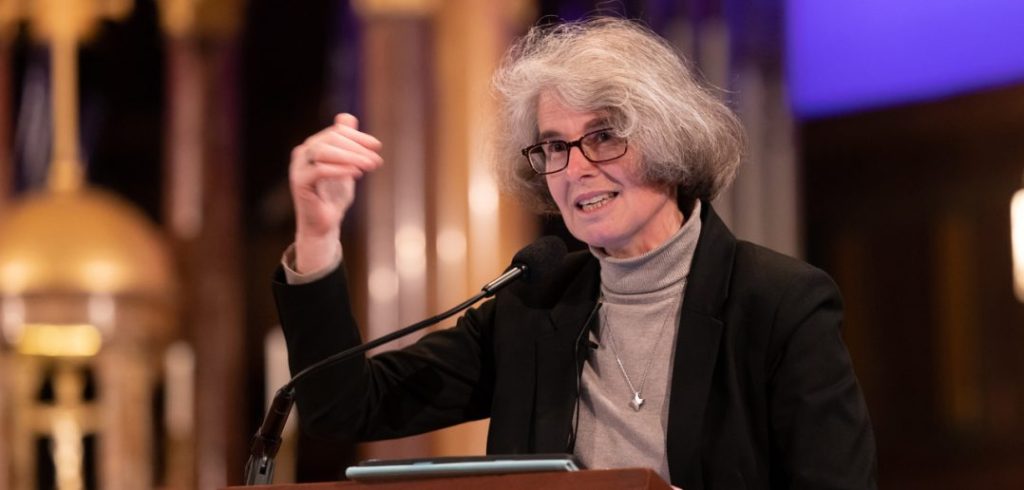“In the church, women are still second-class citizens, but I have hope,” said Jackie Baligian, who started a women’s ministry in her parish to give women a platform.
Baligian was drawn to Sister Nathalie Becquart’s talk, “Women and Youth: The Driving Force of Synodality,” at the Church of St. Paul the Apostle along with about 150 others last Tuesday. The event was sponsored by Fordham’s Center on Religion and Culture as part of the Russo Lecture Series.
Sister Becquart, the undersecretary of the General Secretariat of the Synod, is the highest-ranking woman at the Vatican and the first to hold a voting position. She has been a leader in promoting Pope Francis’ vision of a more “synodal,” or inclusive, church.
“We have highlighted the need to really listen to everybody, to listen to those who feel exiled from the church, especially women and young people who don’t feel their gifts are recognized,” Sister Becquart said, adding that they want a church that is relational and inclusive. “Each of us has a role to play.”
The pope called for a worldwide survey of Catholics, to be conducted in small listening and learning groups, when he launched the Synod on Synodality in 2021. Feedback from those listening sessions, which included laity and young people as well as church leaders, is being compiled for the bishops when they reconvene in October.
Those who came to hear Sister Becquart’s update on the process included Fordham students, faculty, alumni, parishioners, and the public.
Fordham student James Haddad, who is taking the course Ignatian Spirituality this semester, asked Sister Becquart what changes she foresees in the future of the church and if women deacons are a possibility.
“In some countries,” she said, “ there is a call for women deacons. But there’s no unanimity. It takes time to build consensus, and you have to first learn to really listen to each other. But it gives me hope. I already see changes at the grassroots,” she said.
Jim Miracky, S.J., associate pastor at St. Francis Xavier Parish in lower Manhattan, said, “I hate to be the buzzkill in the room,” noting the exclusive male hierarchy of the Catholic Church. “I love what we are trying to do, but do you really believe we are going to get somewhere?”
Sister Becquart replied, “We are in a time of transition. To do this synodal process, it’s about change of mindset, and some change of structure.”
Kaitlyn Squyres, a first-year student at Fordham College at Rose Hill who was raised Catholic in Louisville, Kentucky, said after the talk that she feels very positive and that hearing a powerful female voice was “very cool.”
Baligian agreed.
“There are a lot of mixed messages,” she said. “This is why it’s so important for women to have more forward-facing roles in the church. We can do more than run committees.”


